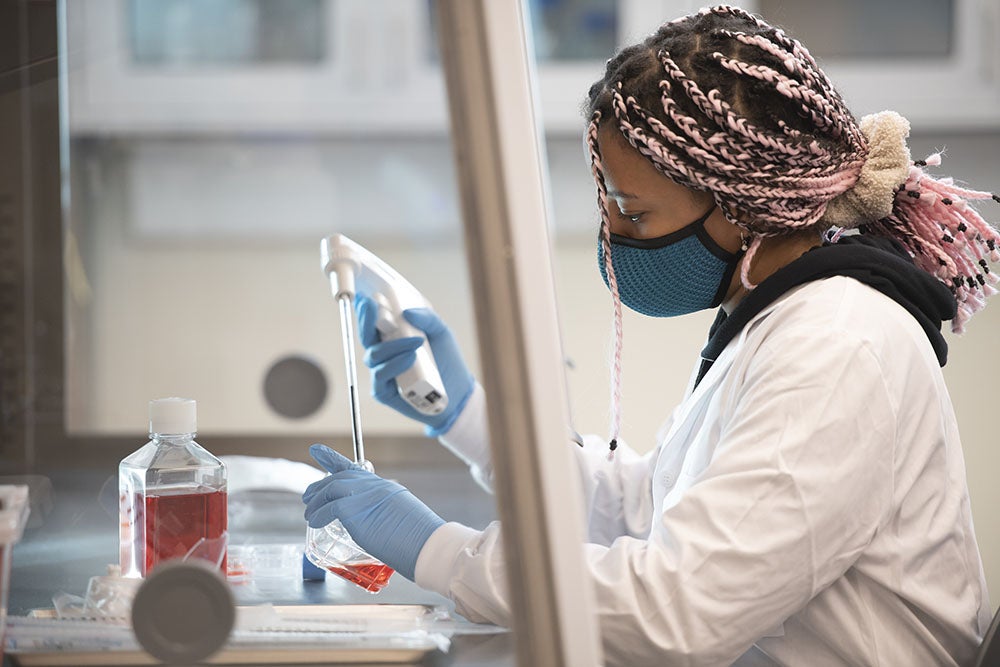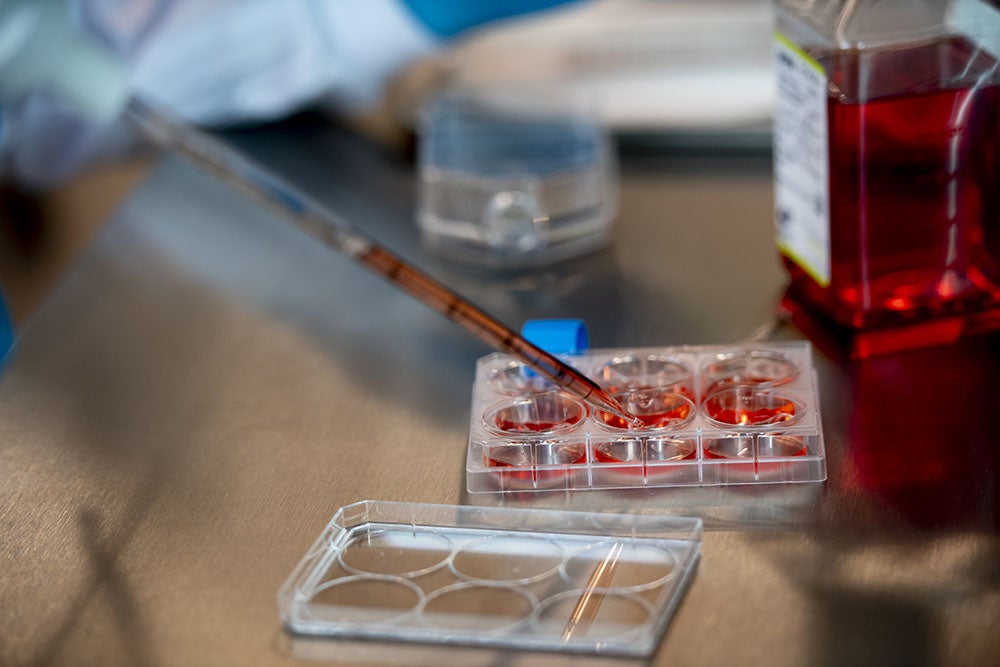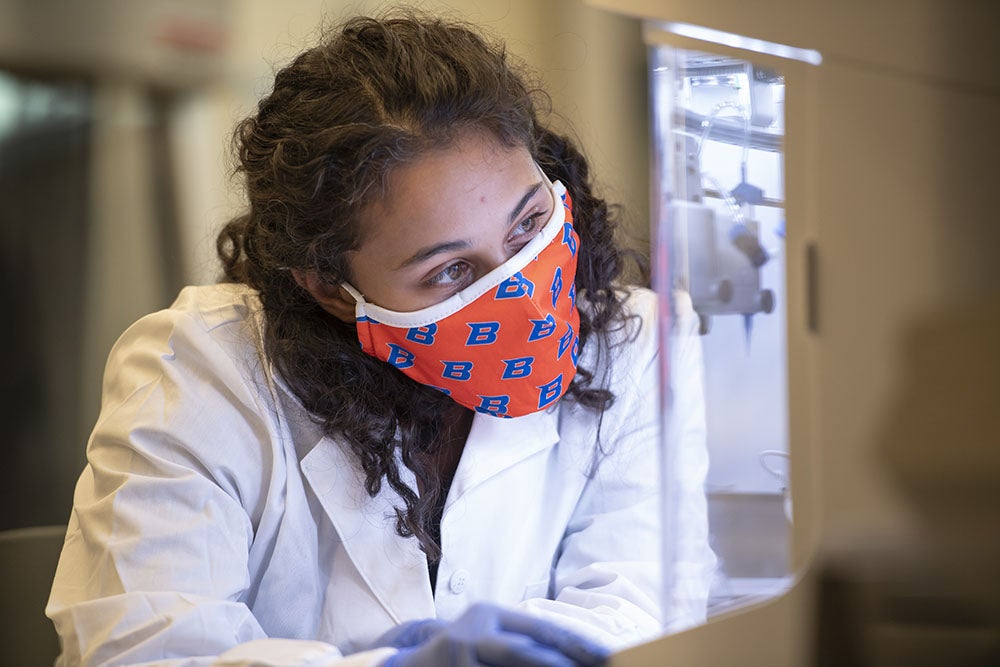
Bioengineering may be less than 30 years old, but its potential to change the future of health, medicine, and engineering is undeniable. At Boise State, biology Professor Julia Oxford and Associate Professor of Materials Science and Engineering Dave Estrada are leading an initiative to improve Idaho’s capacity in bioengineering and bioprinting.
This initiative, called the Bioengineering Core, will ensure that the state’s biomedical researchers, faculty and research students have the opportunity to use cutting-edge equipment and infrastructure to further biomedical research.
“It’s exciting to be in a field where we get the opportunity to work with students, the next generation that is going to push the technology forward, and to see how excited they get about access to these kinds of tools and capabilities,” Estrada said.

To do this, Oxford, Estrada and their colleagues are working to outfit current Boise State labs in the Micron Engineering Center and the Micron Center for Materials Research with essential equipment for the core. This equipment includes items such as microscopes, software, special materials printers used to create bioscaffolds (a structure on which tissue can grow and be implanted in the body), and bioreactors to measure changes in cell behavior. Support for the Bioengineering Core comes from the National Institutes of Health IDeA Network of Biomedical Research Excellence (INBRE) program and the Center of Biomedical Research Excellence (COBRE).
Bioengineering is by definition interdisciplinary, as it relies upon biological, biomedical and engineering knowledge and equipment. The core laboratories will also make it possible for collaborative research teams to work together across disciplines in a dedicated space. For example, the Bioengineering Core will support current Boise State research pertaining to mesenchymal stem cells, breast cancer metastasis, wound imaging and healing, graphene bioscaffolds, and more.

The Bioengineering Core will also ensure that Boise State student’s are able to gain hands-on experience using state-of-the-art equipment and expanding their own scientific skills. Oxford, a first generation student and prolific researcher said that in her own experience, she discovered that the ability to constantly retrain oneself and reach for new skills and knowledge is “what it takes to be a researcher.” The Bioengineering Core will offer students even more opportunities to do so.
“When I was a graduate student I remember thinking ‘As soon as I get all of these skills down, I’ll know everything I need to know and I’ll just be able to go and answer all the questions that I want to answer,’” Oxford said. “But instead of being comfortable knowing everything you need to know, you have to be comfortable learning new things.”